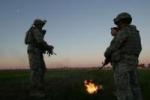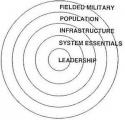Yemen is not a willing home to al-Qaeda – it is victim to an ideology exported from neighbouring Saudi Arabia. In our desire to blame and, eventually, bomb, let us not forget the other Yemen: one of the last bastions of traditional, serene Islam. Yemeni Sufis have been imparting their version of normative Islam for centuries through trade and travel. Hundreds of British Muslims have been studying in Yemen's pristine Islamic institutions. They have returned to Britain connected to an ancient chain of spiritual knowledge and now lead several Muslim communities with the Sufi spirit of love for humans, dedication to worship, and service to Islam.
For me, empowering and supporting this Yemeni Islam against the rigid, literalist, supremacist Wahhabite ideology of our Saudi allies in Riyadh is a sure recipe for eventual victory. But will we dare upset the House of Saud? It seems unlikely. President Obama literally bowed before the Saudi king in London last year.
We are now being told that al-Qaeda in the Arabian Peninsula (AQAP) runs terrorist camps and this justifies "pre-emptive strikes" on Yemen. But what is AQAP except leading Saudi terrorists – Naser al-Wahishi and Said al-Shihri – who have now set up shop in Yemen, with a ragtag army of 200 men? Who is Osama Bin Laden except a Saudi who wanted political reforms in his own country, failed, and then turned his guns on the western backers of the Saudi regime?








 "A Sherman can give you a very nice... edge."- Oddball,
"A Sherman can give you a very nice... edge."- Oddball, 





Bookmarks